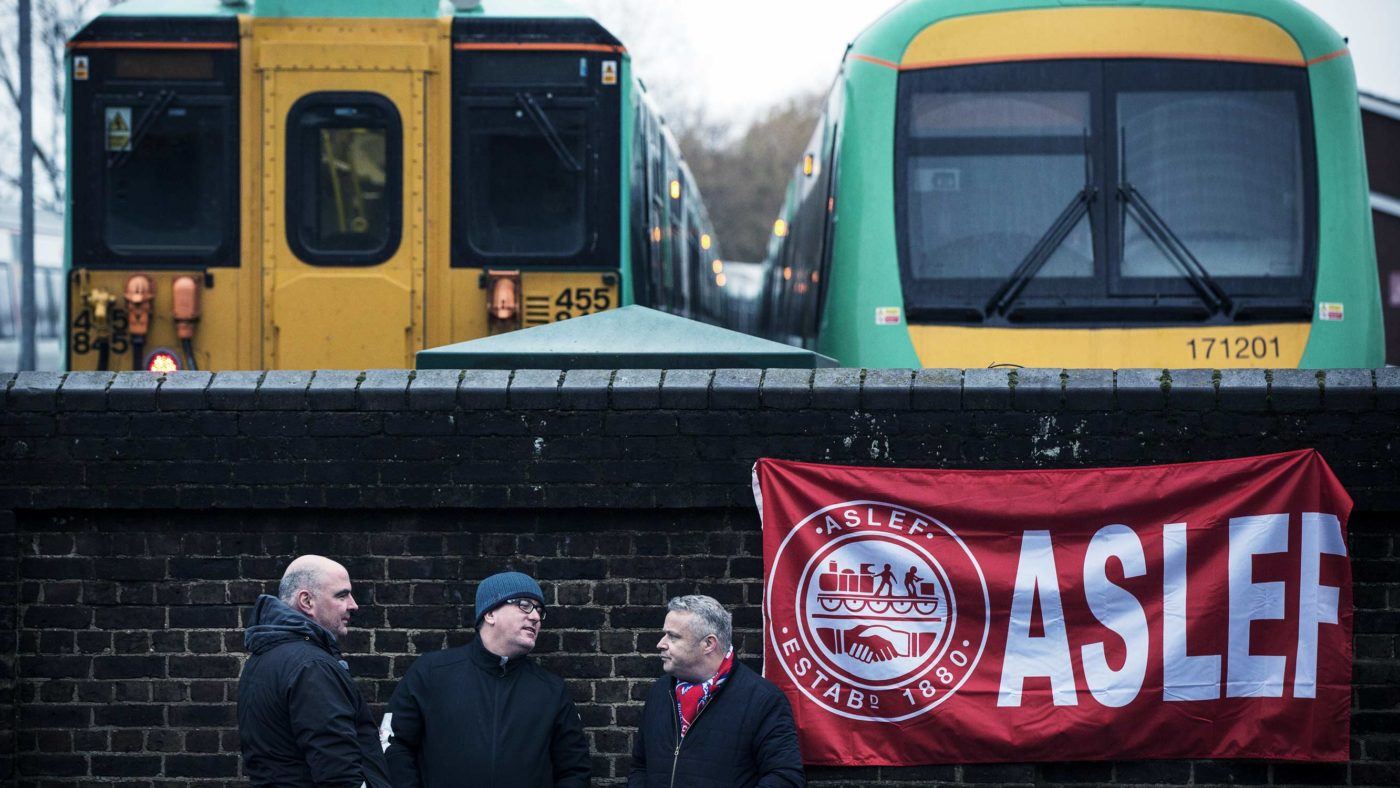The unions are at it again. Strikes for Christmas. Sure, it’s hardly 1979 all over again (when 29 million working days were lost to strike action), let alone the really big strike years of 1926 (162 million lost days) or 1921 (86 million). In 2014, the last full year for which we have detailed data, the UK lost just 800,000 working days to strike action – less than one one hundredth of the lost days in 1921 and less than one two hundredth of the lost days in 1926.
Tiny by the standards of the past it might be, but strikes are still jolly annoying when they happen. Folk ask: “Why is this allowed?” The stock answer offered – that there is some kind of intrinsic “right to withhold labour” is plain wrong. There is not, and never has been any “right to withhold labour” in the UK. If you decide not to turn up to work tomorrow, then unless you’ve arranged leave you are in breach of contract. If you incite a couple of mates to bunk off with you that’s called a “wildcat strike” and you can be prosecuted. The “right to strike” is simply a myth.
All that’s ever existed in the UK is a protection for unions from being sued if they incite their members to breach their contracts by not turning up for work. (This came in after the notorious “Taff Vale Railway Company” case of 1901, which held that unions could be sued for the loss of profits caused by strike action, which led to the Trade Disputes Act, 1906, which provided protection for unions from such suits.)
Is such a protection still justified? Why do we allow strikes at all? The key purpose of allowing strikes is to give unions a negotiating weapon in collective bargaining. So, the union negotiates terms and conditions and if it doesn’t like what it’s being offered it calls its members out, collectively, on strike.
Get more from CapX
Follow us on Twitter
Like us on Facebook
Sign up to our email bulletin
When these protections first came in in the early 20th century, collective action was widely thought advantageous in economic matters. Firms were encouraged (and in some sectors mandated) to form cartels. Monopolies were accepted or even facilitated as helping to exploit economies of scale and to prevent wasteful competition. Since firms were encouraged to act as monopolies, it was thought natural for workers to do the same.
That went back to an earlier tradition in which unions helped workers to offset the local monopoly power of firms. If you worked for a large mill in a town that employed the majority of the adults, and your ability to travel or move elsewhere to take a job in another town was limited, you either worked for the mill or you ended up in the poor house. The modern idea that if you don’t get on with your employer you just move on to some other job wasn’t on most people’s radar (or wouldn’t have been if radar had been invented).
When a firm is the sole purchaser of labour, economists call it a “monopsonist”. (A “monopolist” is a sole seller; a “monopsonist” is a sole buyer.) Unions allowed workers to act collectively to achieve monopoly power that offset the monopsony power of firms.
That made perfect sense then. But does it make any sense now? These days, if firms try to get together to form a cartel, that’s a crime and someone’s going to jail. In most sectors of the economy, if you don’t like the pay or conditions, you just move to another job. And even when you don’t, there are many better mechanisms for pursuing grievances than strikes.
There are widespread general legal protections of workers’ rights, alongside employment tribunals for more specific matters. If a firm becomes a monopolist. we don’t establish a union to offset its power; we set the Competition and Markets Authority on it or we make it subject to price-cap regulation.
Elsewhere on CapX
The Eastern solution to the Southern rail problem
Don’t ban strikes, sack strikers
Subsidising heavy industry is not a good idea for Britain
Across most of the economy the whole concept of collective bargaining and the strikes that accompany it is simply obsolete and should obviously no longer be allowed. The only reason the anomaly is permitted to continue is that so few people belong to unions in most businesses any more that it’s not worth banning strikes.
There are exceptions, though, and its of interest to understand them. Most people who still belong to unions work in sectors where monopoly power of the firms involved is still significant. In many cases what we are really talking about is public sector bodies, though in a few we mean regulated monopolies (e.g. in some transport activities). Often commentators demand that strikes be banned in the public sector, but actually that’s almost the only place it still makes sense to permit them!
One final point of interest concerns the competitive position of the unions themselves. Unions don’t merely call strikes; they provide lots of other services to their members. But in recent years most of the unions have merged, so there are now a small number of mega-unions. That means that workers who want to belong to a union often have precious little choice as to which union they join. Maybe we should apply modern competition principles to the unions themselves, breaking them up as the monopoly union services-providers they have now become?


